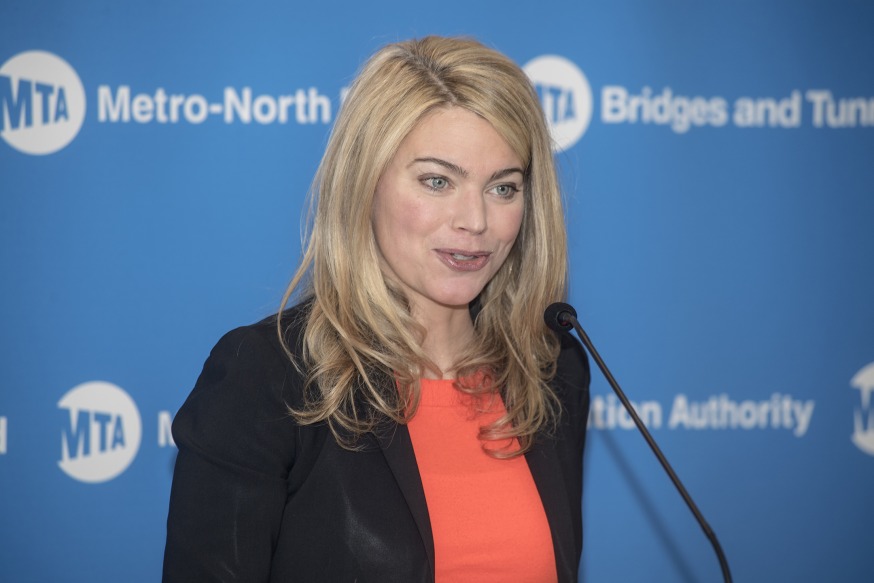
Sarah Feinberg, the MTA’s interim president (Image via MTA)
April 2020, By Michael Dorgan
The MTA has called on City Hall to find a solution to the growing homeless problem and said that the subway system must not turn into a homeless shelter.
Sarah Feinberg, the MTA’s interim president, said in a statement Tuesday that the number of homeless people seeking refuge in the subway has surged since the coronavirus outbreak. She said that the city needs to do more to protect riders.
Feinberg said that the MTA has taken steps over the past year to combat the homeless problem such as hiring extra cleaning staff, bringing on more MTA cops and working with homeless advocacy groups.
She is calling for the city to step in and help the agency given the recent influx – although she was unclear as to how the administration should intervene.
Her appeal for help comes after multiple calls from elected officials and civic groups to shut down the subway– at least temporarily. The officials say the trains are filthy contributing to the spread of COVID-19.
In recent weeks videos have surfaced showing homeless people on the subway stretched out along seats with all of their belongings. There have also been several reports of unruly behavior by the homeless population riding the subway.
The agency says its staff should not have to clean up the mess left behind by the homeless population.
“The MTA workforce shouldn’t have to clean up trash, personal belongings, soiled items, drug paraphernalia, excrement and bodily fluids,” Feinberg said.
“Our customers shouldn’t have to board a car that has multiple people using it as a shelter and as a trash receptacle or toilet,” she said.
Critics argue that the homeless population has been drawn to the subway since shelters are viewed as coronavirus hotspots. For instance, as of Sunday, 55 people who were part of the shelter system had died as a result of COVID-19, according to the city’s Department of Social Services.
Feinberg said that the MTA has done all it can to address the problem but is unable to provide the aid and care the homeless need.
“We aren’t a social-services agency or health-care provider, and we have limited expertise in the unique challenges of mental illness or homelessness, Feinberg said in a statement Tuesday.
“Simply put, we are, under no circumstances, the right people to tackle this problem,” she said.
She said that the MTA is now changing its code of conduct to make it “abundantly clear that the transit system must be used by people for transport only — not for sheltering, sleeping, storing belongings or panhandling.”
She said that the new regulation will be enforced in close coordination with the NYPD and the MTAPD.
Feinberg slammed City Hall, claiming that it had neglected the problem. She said the city must address the issue and make it a priority.
The mayor announced Monday that he is taking steps to tackle the issue. He said the city will be opening 200 new Safe Haven beds this week prioritizing people who live on the subway or on the street.
He has also called on the MTA to shutter 10 “end of the line” subway stations from midnight to 5 a.m. each day for extra cleaning. When the stations close, the homeless will be required to exit and will be offered services by DHS and NYPD Homeless Outreach.
“Our COVID-19 response must prioritize the most vulnerable New Yorkers,” de Blasio said in a statement. “We are doing everything we can to strengthen our subway and street outreach to ensure that every New Yorker who needs a place to sleep will get one.”
